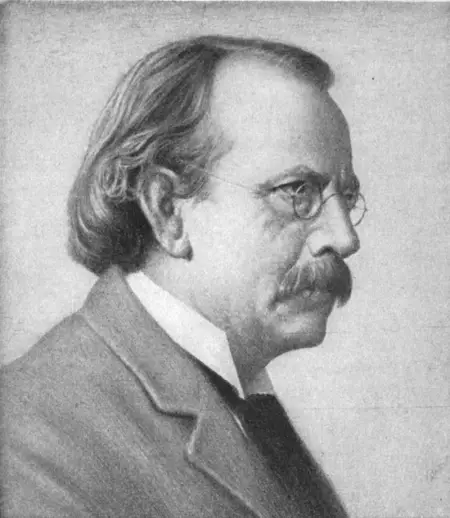
Joseph John Thomson, known as JJ Thomson, was a prominent British physicist born on 18 December 1856 in Cheetham Hill, Manchester.
His life and career left an indelible mark on the history of physics, especially for his key contribution to the discovery of the electron and his pioneering role in the development of atomic theory.
Studies and training
From a young age, Thomson showed an exceptional interest in science. His formal education began at the University of Manchester, where he studied engineering and mathematics.
In 1880, he moved to Trinity College, Cambridge University, where he devoted his attention to experimental physics. This shift marked the beginning of a career that would transform our understanding of the subatomic world.
Discovery of electrons
Thomson rose to scientific prominence in the late 19th century. In 1897, at the age of 40, he made one of the most significant discoveries in the history of physics: he identified the existence of subatomic particles, electrons.
His experiment with cathode ray tubes and measurement of the charge-to-mass ratio of these particles revealed the presence of particles smaller than atoms, challenging scientific beliefs of the time.
This discovery revolutionized atomic theory and opened the door to the study of the fundamental structure of matter.
Thomson's atomic model proposition
Thomson proposed an atomic model in which negatively charged electrons were embedded in a positive mass, similar to raisins in pudding.
Although this model, known as the Thomson model, was later superseded by nuclear theory, Thomson's contribution laid the foundation for future research in quantum physics.
Thomson's role as educator and researcher
In addition to his pioneering work in the theoretical realm, Thomson also had a profound impact on education and scientific research in the United Kingdom.
In 1884, he took up a professorship at Trinity College, Cambridge, and later, in 1906, he became director of the Cavendish Laboratory. Under his leadership, the laboratory became a world-renowned research center, attracting brilliant young scientists who would later make significant contributions to physics.
Thomson's remarkable ability to explain complex concepts in an accessible way also made him an outstanding educator. His influence on training future generations of scientists was undeniable, and his practical approach to teaching inspired many. His book "Conduction of Electricity through Gases", published in 1903, remains a key reference in the field.
Honors and recognitions
Throughout his career, Thomson received several honors and recognitions.
In 1906, he was awarded the Nobel Prize in Physics for his research on the conduction of electricity through gases. This prestigious award highlighted the importance of his contributions to the understanding of the nature of electricity and his pioneering work on atomic structure.
Despite his success, Thomson did not simply rest on his laurels. He continued to research and publish notable works until his death in 1940. His longevity and dedication to science reflect his innate passion for exploring the mysteries of the universe.
Conclusions
In retrospect, JJ Thomson is remembered as one of the founders of quantum physics and a visionary who paved the way for future generations of scientists.
His discovery of the electron and his contribution to atomic theory have left an indelible mark on the history of science, and his legacy endures in every advance made in the study of the subatomic world.